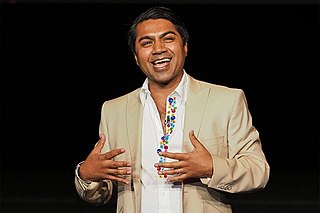A Quote by Gordon S. Wood
[John Adams's] vividly descriptive prose is supremely quotable. Adams wears his heart on his sleeve and reveals all of his ambitions, doubts, and insecurities, especially in his diary, which is one of the greatest and most readable in all of American literature.
Related Quotes
Every answer he [President John Adams] gives to his addressers unmasks more and more his principles and views. His language to the young men at Philadelphia is the most abominable and degrading that could fall from the lips of the first magistrate of an independent people, and particularly from a Revolutionary patriot.
I think it crucial to recognize that you can't straightforwardly "adapt" Douglas Adams. Douglas's genius was uniquely his own. What I've tried to do here, and in every other version, is to be true to the character and the Adams' tone and approach to narrative, his unique brand of word-play and "idea-play" humor.
That this gentleman [President John Adams] ought not to be the object of the federal wish, is, with me, reduced to demonstration. His administration has already very materially disgraced and sunk the government. There are defects in his character which must inevitably continue to do this more and more. And if he is supported by the federal party, his party must in the issue fall with him.
Rather than ennobling the public mind and cementing the social fabric, applied science speedily became the chief weapon of a gross individualism, which was anathema to the frugal and righteous (John Quincy) Adams, the source of enormous fortunes divorced from duty, the instrument of unscrupulous ambition and rapacious materialism. Presently, it came to scar the very of the country which Adams loved, a disfiguring process uninterrupted since his day.




























